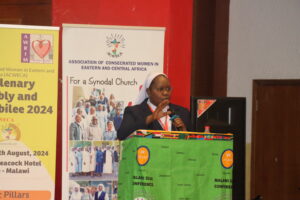TANZANIA: An Organization to use Community Radio to raise HIV awareness
The Tanzania Commission for Aids (TACAIDS) has adopted the use of communitybased
radio stations to disseminate information on HIV matters.
radio stations to disseminate information on HIV matters.
Speaking in Arusha at an inaugural training programme for local broadcasters, reporters and representatives of community radio stations from the northern zone, the TACAIDS communications officer, Ms Glory Mziray, said they have realized that the direct connection that the localized electronic media outlets have with surrounding communities makes them effective tools for informing the masses.
Ms Mziray stated that TACAIDS will also start collecting non-medical reports about HIV and Aids because the pandemic is not only about the related diseases but also social-economic effects.
TACAIDS, which was established in 2001, celebrates its 10th anniversary in 2011 and even now only about 56 per cent of Tanzanians can access direct information regarding HIV infections,” said Ms Mziray.
According to TACAIDS, nearly 1.5 million Tanzanians are infected with HIV, but the rate of infection has dropped from 7 per cent in 2004 to the current 5.6 per cent, with women being the most affected.
Ms Mziray revealed that, in the past, TACAIDS used nationally focused Radio and TV stations as well as newspapers, all based in Dar es Salaam, to disseminate information on HIV/Aids but they have also realized the importance of using community media outlets to target specific groups of people.
“And for years, campaigns against HIV/Aids were all about medical data and related deaths from the pandemic but now we want to inform Tanzanians on how it causes orphans, loss of reliable workforce, diminishing resources and even psychological effects and trauma,” Mziray maintained.
On their part, both the TACAIDS Arusha co-ordinator, Ms Prisca Nalitolela and the Tumaini University Lecturer, Mr Godwin Gondwe, who represented the Masoko Agency, the co-organizer of the event, pointed out that nowadays people preferred to listen to radios from within their proximity.
SOURCE: Daily News, Tanzania


